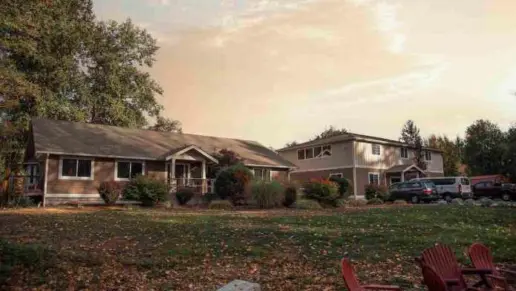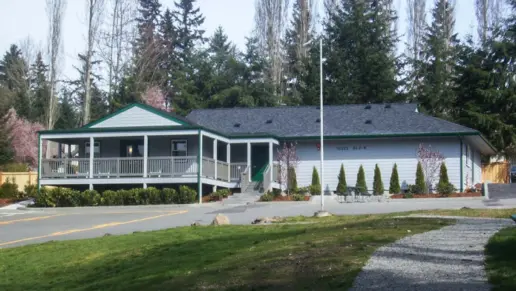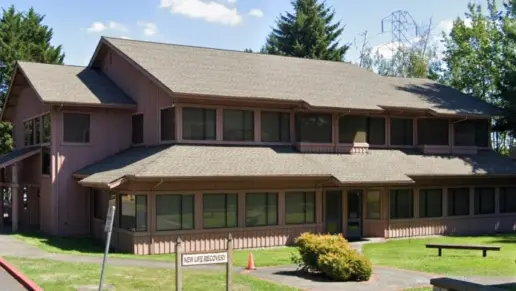Sadly, I would never send a loved one to this treatment center. My son was there and needed care and was offered none. The time he was there the center had an covid outbreak and wasn't able to offere classes and meetings. That was held against him for his time there. And ...
About American Behavioral Health Systems – ABHS
In Chehalis Washington, American Behavioral Health Systems – ABHS provides intensive inpatient services, residential treatment and detoxification for substance use and co-occurring disorders. You will learn new skills and coping mechanisms in their residential treatment program to help you get by in your new drug free life. Depending on their needs and the source of program funding, people admitted to the program can anticipate a treatment stay ranging from 15 to 180 days. This program is exclusively for men.
Their intensive residential treatment program employs a variety of treatment modalities such as group counseling, psychoeducation and cognitive behavioral therapy. They also offer emotional interviewing, individual counseling and therapeutic communities as well as case management. Clients can work with a chemical dependency professional anywhere from five to 20 hours per week depending on the level of care that is determined necessary.
You will be surrounded during your stay by skilled clinicians who are sympathetic to your situation and genuinely interested in your success. They will help you at every stage by offering direction, inspiration and chances for self determination. Patients who are screened and deemed suitable may receive medication assisted treatment. Weekly screening for common medical issues by a family nurse practitioner or psychiatric nurse practitioner can help increase treatment success.
Among their secure acute withdrawal management services are opioid withdrawal and medically assisted withdrawal. They also offer withdrawal services for benzodiazepines, barbiturates, alcohol and amphetamines. Their acute program lasts 7 to 10 days on average, and they may prescribe medication to help you feel less uncomfortable.
Their qualified medical staff will provide you with the safest possible detoxification guidance. To remove the chemicals from your body, it may take five to seven days on average. In more severe cases it can take up to 14 days. Clients meet with a substance abuse professional for evaluation and referral services after they achieve physical stability. Direct referrals to a residential treatment program may fall under this category.
Facility Overview
Latest Reviews
Rehab Score
Gallery
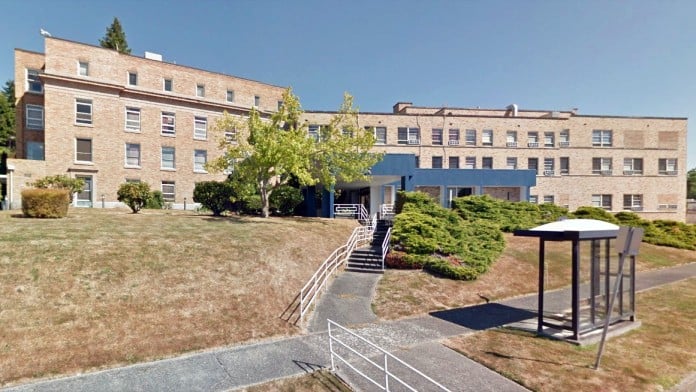
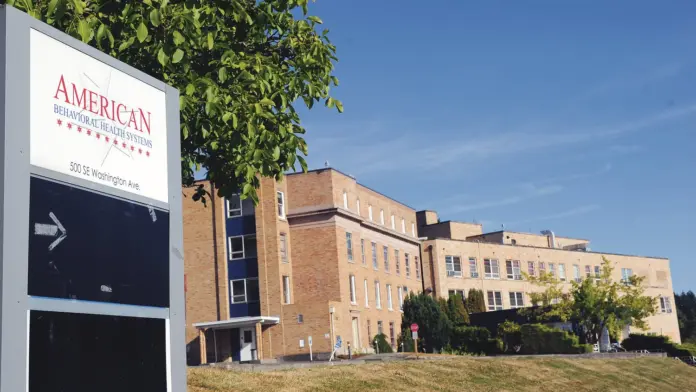
Location
Other Forms of Payment
Private insurance refers to any kind of healthcare coverage that isn't from the state or federal government. This includes individual and family plans offered by an employer or purchased from the Insurance Marketplace. Every plan will have different requirements and out of pocket costs so be sure to get the full details before you start treatment.
Self-pay involves paying for treatment out of your own pocket. You can use savings or credit, get a personal loan, or receive help from family and friends to fund your treatment. If you don't have insurance or your insurance plan doesn't cover a specific program, self-pay can help ensure you still get the care you need.
Financial aid can take many forms. Centers may have grants or scholarships available to clients who meet eligibility requirements. Programs that receive SAMHSA grants may have financial aid available for those who need treatment as well. Grants and scholarships can help you pai for treatment without having to repay.
Medicaid is a state based program that helps lower-income individuals and families pay for healthcare. Medicaid covers addiction treatment so those enrolled can use their coverage to pay for rehab. When a program accepts Medicaid the client often pays very little or nothing out of their own pocket.
Addiction Treatments
Levels of Care
 Inpatient
Inpatient
 Outpatient
Outpatient
 Intensive Outpatient
Intensive Outpatient
 Medically Assisted Detox
Medically Assisted Detox
 12-Step
12-Step
 Aftercare Support
Aftercare Support
Treatments
The goal of treatment for alcoholism is abstinence. Those with poor social support, poor motivation, or psychiatric disorders tend to relapse within a few years of treatment. For these people, success is measured by longer periods of abstinence, reduced use of alcohol, better health, and improved social functioning. Recovery and Maintenance are usually based on 12 step programs and AA meetings.
Effective drug rehab in Washington integrates care for the whole person, offering comprehensive solutions to addiction. Treatment methods address mental, physical, and relational aspects of substance abuse.
A combined mental health and substance abuse rehab has the staff and resources available to handle individuals with both mental health and substance abuse issues. It can be challenging to determine where a specific symptom stems from (a mental health issue or an issue related to substance abuse), so mental health and substance abuse professionals are helpful in detangling symptoms and keeping treatment on track.
Opioid rehabs specialize in supporting those recovering from opioid addiction. They treat those suffering from addiction to illegal opioids like heroin, as well as prescription drugs like oxycodone. These centers typically combine both physical as well as mental and emotional support to help stop addiction. Physical support often includes medical detox and subsequent medical support (including medication), and mental support includes in-depth therapy to address the underlying causes of addiction.
Programs

Adult Program

Young Adult Program
Clinical Services
Cognitive Behavioral Therapy (CBT) is a therapy modality that focuses on the relationship between one's thoughts, feelings, and behaviors. It is used to establish and allow for healthy responses to thoughts and feelings (instead of unhealthy responses, like using drugs or alcohol). CBT has been proven effective for recovering addicts of all kinds, and is used to strengthen a patient's own self-awareness and ability to self-regulate. CBT allows individuals to monitor their own emotional state, become more adept at communicating with others, and manage stress without needing to engage in substance abuse.
Group therapy is any therapeutic work that happens in a group (not one-on-one). There are a number of different group therapy modalities, including support groups, experiential therapy, psycho-education, and more. Group therapy involves treatment as well as processing interaction between group members.
In individual therapy, a patient meets one-on-one with a trained psychologist or counselor. Therapy is a pivotal part of effective substance abuse treatment, as it often covers root causes of addiction, including challenges faced by the patient in their social, family, and work/school life.
Life skills trainings involve all the skills a person must have in order to function successfully in the world. These include time management, career guidance, money management, and effective communication. Truly successful addiction recovery is based on the ability to not only live substance-free, but to thrive. Life skills teaches the practical necessities of functioning in society, which sets clients up for success in life, and therefore sobriety.
Motivational Interviewing (MI) is a clinical approach to helping people with substance abuse issues and other conditions shift behavior in positive ways. It is more goal-oriented than traditional psychotherapy, as MI counselors directly attempt to get clients to consider making behavioral change (rather than wait for them to come to conclusions themselves). Its primary purpose is to resolve ambivalence and help clients become able to make healthy choices freely.
Amenities
-
Residential Setting
-
Private Setting
-
Private Transportation
Staff
Craig Phillips
President & CEO
Contact Information
500 SE Washington Avenue
Chehalis, WA 98532
